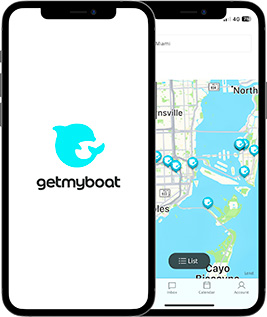Lake Hamilton is a large lake in Arkansas that is popular for boating, fishing, and other recreational activities. Commercial boating businesses play an important role in the local economy and provide visitors with a variety of ways to enjoy the lake. However, it is important to be aware of the different regulations that are in place for boating on Lake Hamilton, as they are enforced by three different authorities Entergy , Arkansas Game & Fish Commission, Coast Guard Auxiliary.
To help, we’ve gathered the following essential details for boating on Lake Hamilton.
Commercial Boat Permit:
Every commercial boat operator on Lake Hamilton is required to possess a current commercial boat permit granted by Entergy Arkansas. To acquire this permit, operators must complete an application and remit a fee. The application procedure also involves a safety inspection of the boat.More information can be found by visiting Energy or calling (501) 844-2148.
Certificate of Inspection (COI):
If you intend to run a commercial boating business on Lake Hamilton, the initial step is securing a US Coast Guard Certificate of Inspection (COI). After a vessel successfully undergoes inspection, the Coast Guard will provide the COI, which must be prominently displayed on the vessel for passenger visibility. Periodic Coast Guard inspections are conducted to verify ongoing compliance with safety regulations for commercial vessels. In the event of non-compliance, the Coast Guard may take actions such as issuing citations or suspending the vessel's COI.
You can learn more about the COI process on the Coast Guard website.
USCG License:
If you plan to operate a commercial vessel on Lake Hamilton, you must hold a valid USCG Captain's License, with specific requirements depending on the vessel's size. License holders must adhere to all regulations, including speed limits and maintaining a safe distance from other vessels.
Use the promo code GETMYBOAT10 for 10% off all products.
Insurance:
To comply with Arkansas regulations, all commercial vessels navigating Lake Hamilton must maintain commercial liability insurance coverage. Proof of this insurance must be provided by boat owners during the registration process with the Arkansas Game and Fish Commission.
Registration:
To legally operate any watercraft on Arkansas' public waterways, except those without engine or sail propulsion, registration is obligatory. This process entails obtaining both an Arkansas Certificate of Number and validation decals. For more detailed information, you can visit the Arkansas DFA website or contact them at (501) 682-4692.
Boater Safety Education:
Anyone born on or after January 1, 1986, who intends to operate a motorboat, personal watercraft , or sailboat on Lake Hamilton is required by law to successfully complete a boater safety course and possess a boater education card. For additional information, please refer to the AGFC website.
Pick up / Drop off Location:
Lake Hamilton Public Boat Ramp
Boat operators on Lake Hamilton must also adhere to specific operational guidelines, including:
- Compliance with posted speed limits and no-wake zones is mandatory.
- Operators are required to avoid navigating in areas with a high concentration of recreational boaters.
- Discharging any pollutants into the lake is strictly prohibited.
- Immediate reporting of accidents or injuries to Entergy Arkansas is a requisite.
- The boat must be equipped with all mandated safety gear, such as life jackets, fire extinguishers, and first-aid kits.
- Operation of the boat must be carried out by a licensed captain.
- Commercial boats are prohibited from docking at residential docks.
- Operation during specific hours of the day, such as sunrise and sunset, is not permitted.
- Certain areas of the lake, such as fish spawning zones and wetlands, are off-limits to commercial boat operation.
For information on the necessary permits for your Lake Hamilton commercial boat operation, please reach out to the following organizations: Entergy Arkansas at (501) 844-2148, Arkansas Game & Fish Commission at 501-525-0929, and US Coast Guard Auxiliary at 501-767-7706.















